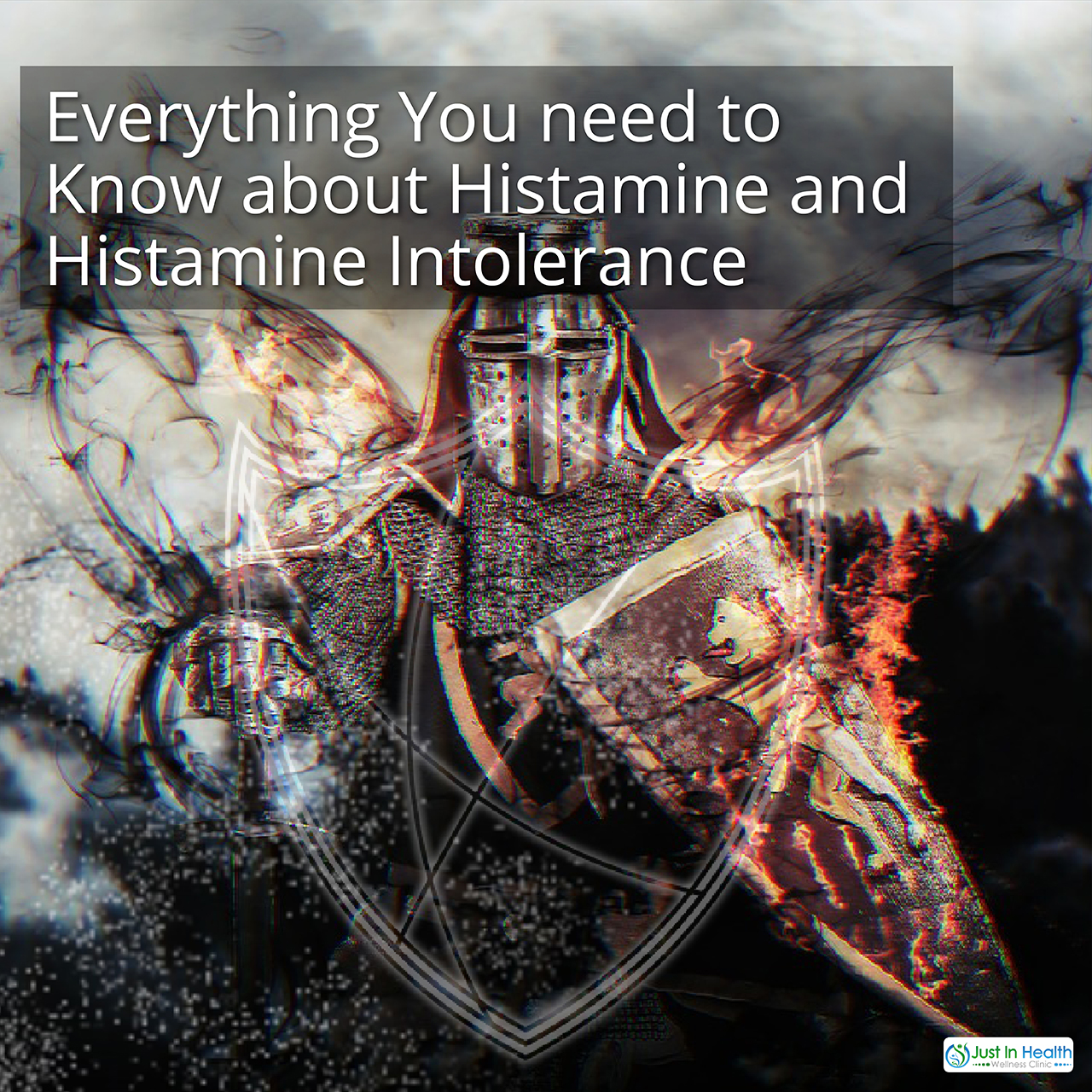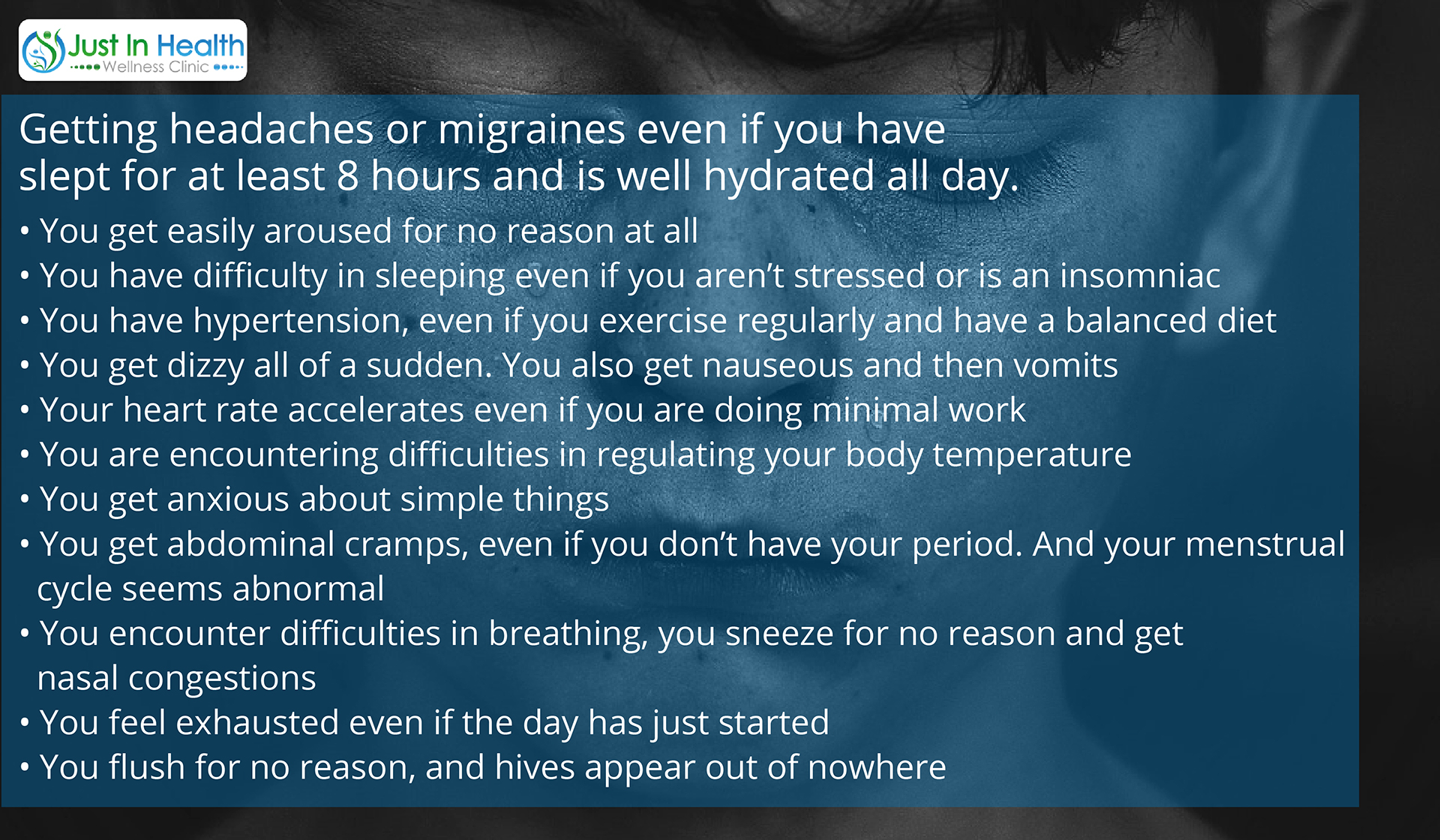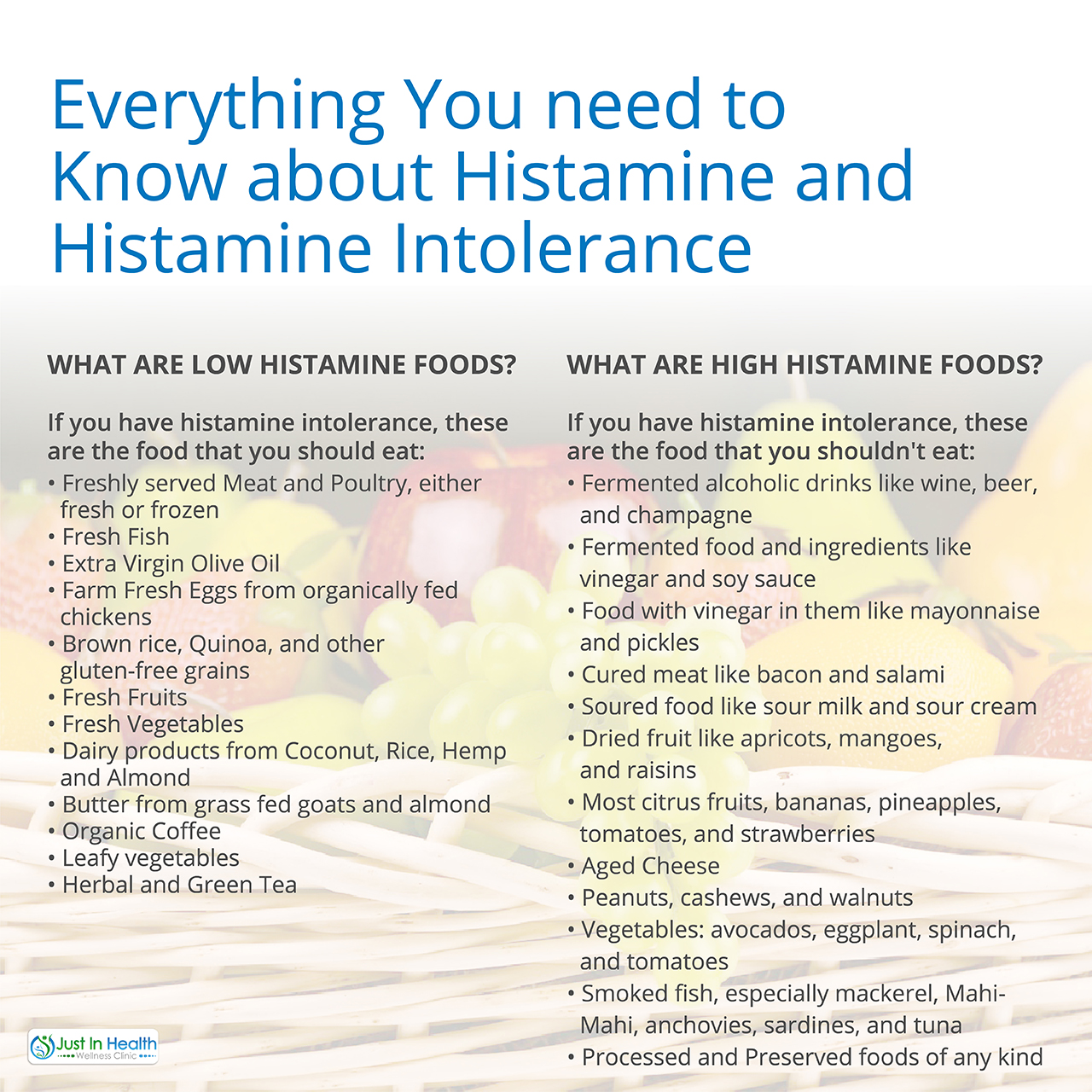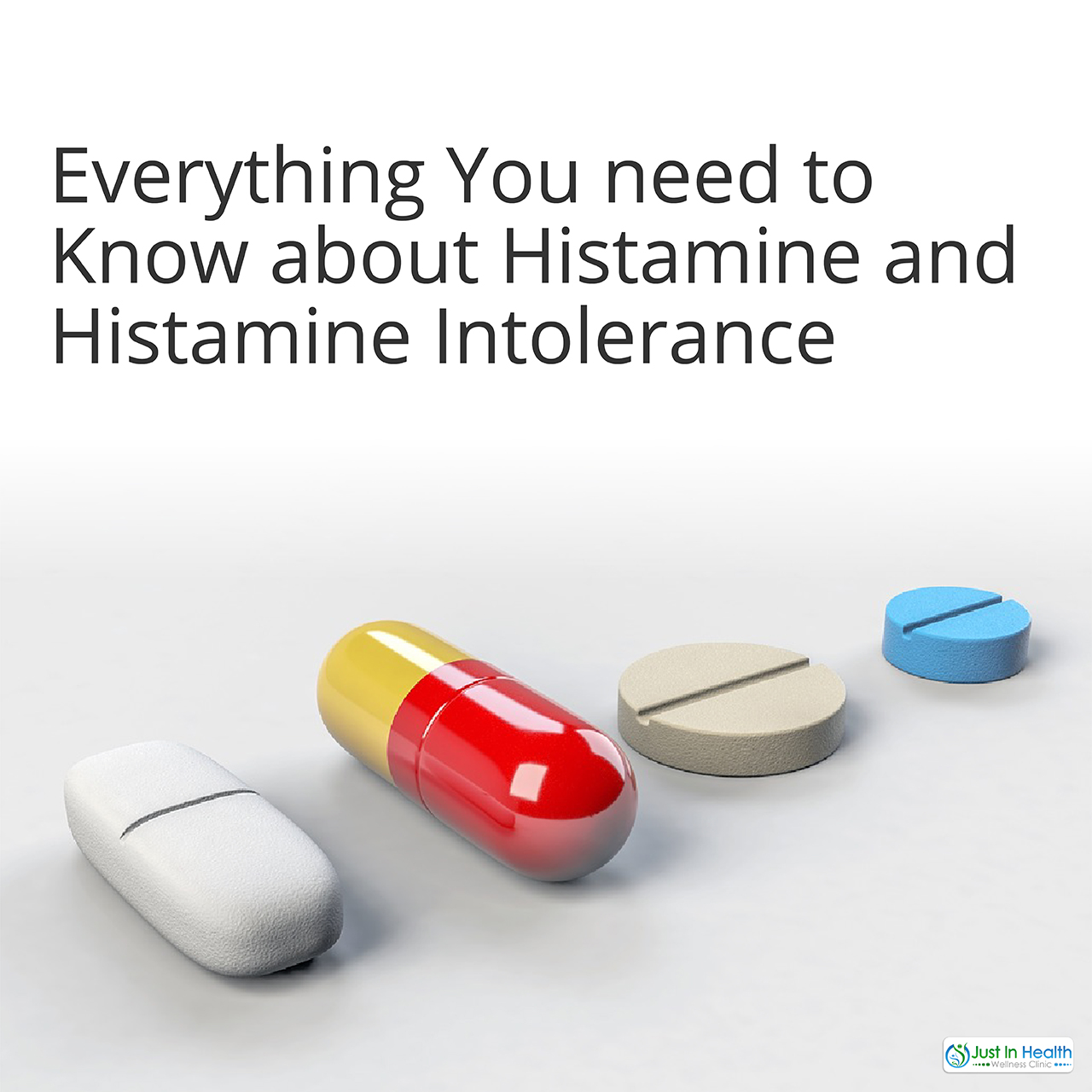Everything You Need to Know About Histamine and Histamine Intolerance

By Dr. Justin Marchegiani
What is Histamine?
At one point, we’ve all heard of antihistamines, but unfortunately for most us, we aren’t aware of histamine’s existence. Antihistamines are what most of us know what we use to “fight- off” of allergies. What we don’t know is that histamines are actually the ones that fight off allergies, and antihistamines are just fighting off the symptoms that histamines cause when fighting off the allergens out of your body.
The histamines are naturally occurring chemicals inside your body.Your immune system is the one responsible for making them. And if there is anything that’s bothering your body, histamines help you get rid of that. Histamines can, therefore, be termed as warriors fighting off evil inside your body.
What is Histamine's Role in your Body?
Every time you sneeze or feel itchy when you are near something that causes you allergens, remember that is your body’s defense mechanism acting up. That’s histamine in action. So, when you’re allergic to dust and it gets inside your nose, histamines make you sneeze that dust-out. When you’re allergic to peanuts, and you ingest them, histamines make your throat swell up, preventing the peanuts to go further inside your body.
Though at times, our bodies tend to overreact, though its only intention is to protect us. One of those overreactions is swelling up of our breathing passages, like your throat, which then causes blockage in our breathing. And that’s why we have antihistamines. Antihistamines prevent overreaction to allergens that are caused by histamines.
What is Histamine Intolerance?
Experts are still quite unsure what is the cause of histamine intolerance. Most of them though have hypothesized that histamine intolerance occurs when there is a build of histamine. If you’re a healthy person, your histamine will be broken down by two enzymes regularly. These two enzymes are called DAO and HNMT. The DAO enzyme comes from your intestine, while HNMT can be found on your liver.
If either of your liver or intestine gets compromised, then this will probably result to your histamine not broken down regularly. When your histamine is not broken down regularly, there will be build up, thus your allergic reaction becomes an overreaction. Most experts have also hypothesized that people who have gastrointestinal and liver disorders will also most likely have histamine intolerance.
What are the signs that you're Histamine Intolerant?

If you’re histamine intolerant, these are the signs that you’d need to look out for:
- Getting headaches or migraines even if you have slept for at least 8 hours and is well hydrated all day.
- You get easily aroused for no reason at all.
- You have difficulty in sleeping even if you aren’t stressed or is an insomniac.
- You have hypertension, even if you exercise regularly and have a balanced diet
- You get dizzy all of a sudden. You also get nauseous and then vomits.
- Your heart rate accelerates even if you are doing minimal work.
- You are encountering difficulties in regulating your body temperature.
- You get anxious about simple things.
- You get abdominal cramps, even if you don’t have your period. And your menstrual cycle seems abnormal.
- You encounter difficulties in breathing, you sneeze for no reason and get nasal congestions.
- You feel exhausted even if the day has just started.
- You flush for no reason, and hives appear out of nowhere.
If you are encountering any of these, make sure to see your physician at once. You may be histamine intolerant, or these things might just happen randomly. These could also be signs of another sickness or illness. But whatever the reason may be, it is always best to get a Doctor’s advice.
What should you do & eat if you're Histamine Intolerant?

When you are Histamine Intolerant, diet is not the only things that you should change. The treatment for this does not solely depend on what you should eat and what you shouldn’t eat. A holistic approach to treating histamine intolerance is always best. Yes, eating healthy is one way to treat this, but if you’d want to get better, why not do it all, right?
- First of all, if you’re histamine intolerant, you should get enough sleep. 7-8 hours of sleep during the night. If you are working during the night, and sleeping during the day, it would be advisable to sleep in a room that’s relatively dark. You should make sure that there’s no amount or very little amount of light when you prefer sleeping during the day.
- Second, regular exercise is highly advised. Exercising does not only help you in your histamine intolerance but will also help you maintain or lose weight. Remember that two signs of having histamine intolerance are hypertension and shortness of breath. If you exercise regularly, you’ll increase your body’s stamina and also burn out those unnecessary calories.
- Third, learn when is the right time to relax. Even a well-oiled machinery needs to stop working every little while, and so should you. Relaxation may not mean an extravagant vacation to the Bahamas, but a time off from anything that tires you. You can just grab a book, or buy a movie, and sit back, enjoy, and relax. Relaxation doesn’t necessarily mean that you’d only do it when you can barely from overworking, it can also mean those short coffee breaks and enjoying stress-free minutes.
- And lastly, go on a low histamine diet. Eat fresh foods as much as possible. Processed and fermented foods are usually high in histamine liberators, or chemicals that trigger an increase in your histamine level. Eat fresh meat and fish, also a regular consumption of eggs would be great. Eat fresh fruits like mangoes, apples, kiwis, watermelons, and grapes. Fresh vegetables are also advisable, though you may want to avoid eating tomatoes, eggplants, and spinach. Using virgin coconut oil and olive oil when cooking is also advised. And exchanging your coffee for tea would do you wonders too, especially herbal teas.
What are Low Histamine Foods?
If you have histamine intolerance, these are the food that you should eat:
- Freshly served Meat and Poultry, either fresh or frozen
- Fresh Fish
- Extra Virgin Olive Oil
- Farm Fresh Eggs from organically fed chickens
- Brown rice, Quinoa, and other gluten- free grains
- Fresh Fruits
- Fresh Vegetables
- Dairy products from Coconut, Rice, Hemp, and Almond
- Butter from grass fed goats and almond
- Organic Coffee
- Leafy vegetables
- Herbal and Green Tea
What are High Histamine Foods?
If you have histamine intolerance, these are the food that you shouldn't eat:
- except for spinach and eggplant
- Fermented alcoholic drinks like wine, beer, and champagne
- Fermented food and ingredients like vinegar and soy sauce
- Food with vinegar in them like mayonnaise and pickles
- Cured meat like bacon and salami
- Soured food like sour milk and sour cream
- Dried fruit like apricots, mangoes, and raisins
- Most citrus fruits, bananas, pineapples, tomatoes, and strawberries
- Aged Cheese
- Peanuts, cashews, and walnuts
- Vegetables: avocados, eggplant, spinach, and tomatoes
- Smoked fish, especially mackerel, Mahi- Mahi, anchovies, sardines, and tuna
- Processed and Preserved foods of any kind
What are the Supplements for Histamine Intolerance?

Here are the supplements that you can take to help you with your Histamine Intolerance:
- Copper: Copper is said to help increase DAO level in your blood, which will in turn help break down histamine. Just be careful in taking a copper supplement, it would be wise to check your blood’s copper level first. Too much copper in your body can be toxic.
- Vitamin C: Vitamin C does not only boosts your immune system, it also helps increase your DAO production. It would be advisable that you procure yourself a Vitamin C that’s ascorbic acetate instead of ascorbic acid.
- Vitamin B6: Vitamin B6 is DAO enzyme’s helper, or can be called as Cofactor molecule.
- Quercetin: When you intake Quercetin, you’re helping your body to calm the inflammation. It also blocks the releases of histamine from your mat cells.
- Bishop’s Weed: Or as it’s more commonly known as Khella. It’s a plant based mast cell stabilizer. It can help reduce respiratory symptoms that are caused by histamine intolerance.
These supplements may help you in your histamine intolerance, but as I’ve said earlier, a holistic approach is always best. Also, self-medication is not advisable, as there are may be more underlying conditions that need to be treated. Always ask for a professional opinion, and follow your doctor’s orders. As soon as you’ve confirmed that you’re histamine intolerant, start getting better by sleeping early, exercising regularly, learn to relax, and eating healthy. You may not be bothered by the symptoms right now, but you don’t have to wait for it to get worse before taking an action. Prevention is in any illness and disease, and histamine intolerance is no exemption. Be healthy and be happy!




